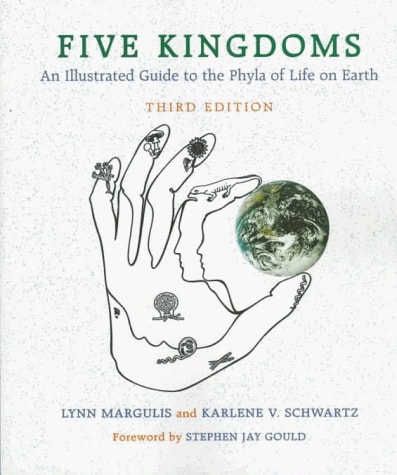Lynn Margulis
Lynn Margulis is a noted contributor to Encyclopaedia Britannica online. Read Britannica's biography of Lynn Margulis
Distinguished University Professor, University of Massachusetts, Amherst. Coauthor of Five Kingdoms: An Illustrated Guide to the Phyla of Life on Earth; What Is Life?; and others.
Primary Contributions (2)

Life, living matter and, as such, matter that shows certain attributes that include responsiveness, growth, metabolism, energy transformation, and reproduction. Although a noun, as with other defined entities, the word life might be better cast as a verb to reflect its essential status as a…
READ MORE
Publications (3)

Five Kingdoms: An Illustrated Guide to the Phyla of Life on Earth
An all-inclusive catalogue of the world's living diversity, Five Kingdoms defines and describes the major divisions of nature's five great kingdoms-bacteria, protoctists, animals, fungi, and plants-using a modern classification scheme that is consistent with both the fossil record and molecular data.Generously illustrated and easy to follow, it not only allows students to sample the full range of life forms inhabiting our planet but to familiarize themselves with the taxonomic theories...
READ MORE

What Is Life?
In their latest work, acclaimed authors Lynn Margulis and Dorion Sagan plunge into the very heart of living matter. Transcending both mechanistic and vitalistic concepts of life, this captivating book argues that the question "What is life?" is a linguistic trap. To answer according to the rules of grammar, we must supply a noun, the name of a thing. But life on Earth is more like a verb. It is a material process, surfing over matter like a strange, slow wave. It is a controlled artistic chaos, a...
READ MORE

Symbiotic Planet
named ”best Biology Book Of The Year” By Library Journal, symbiotic Planet Describes How Symbiosis Is The Key To Understanding The Origins Of Cells, The Evolution Of Sex, The Emergence Of Life On Land, And Even The Physiology Of Our Planet.
scientific American
...margulis Describes The Development Of Her Theory Of Symbiosis And Ponders How It Relates To The Gaia Concept Of A Living Earth.




